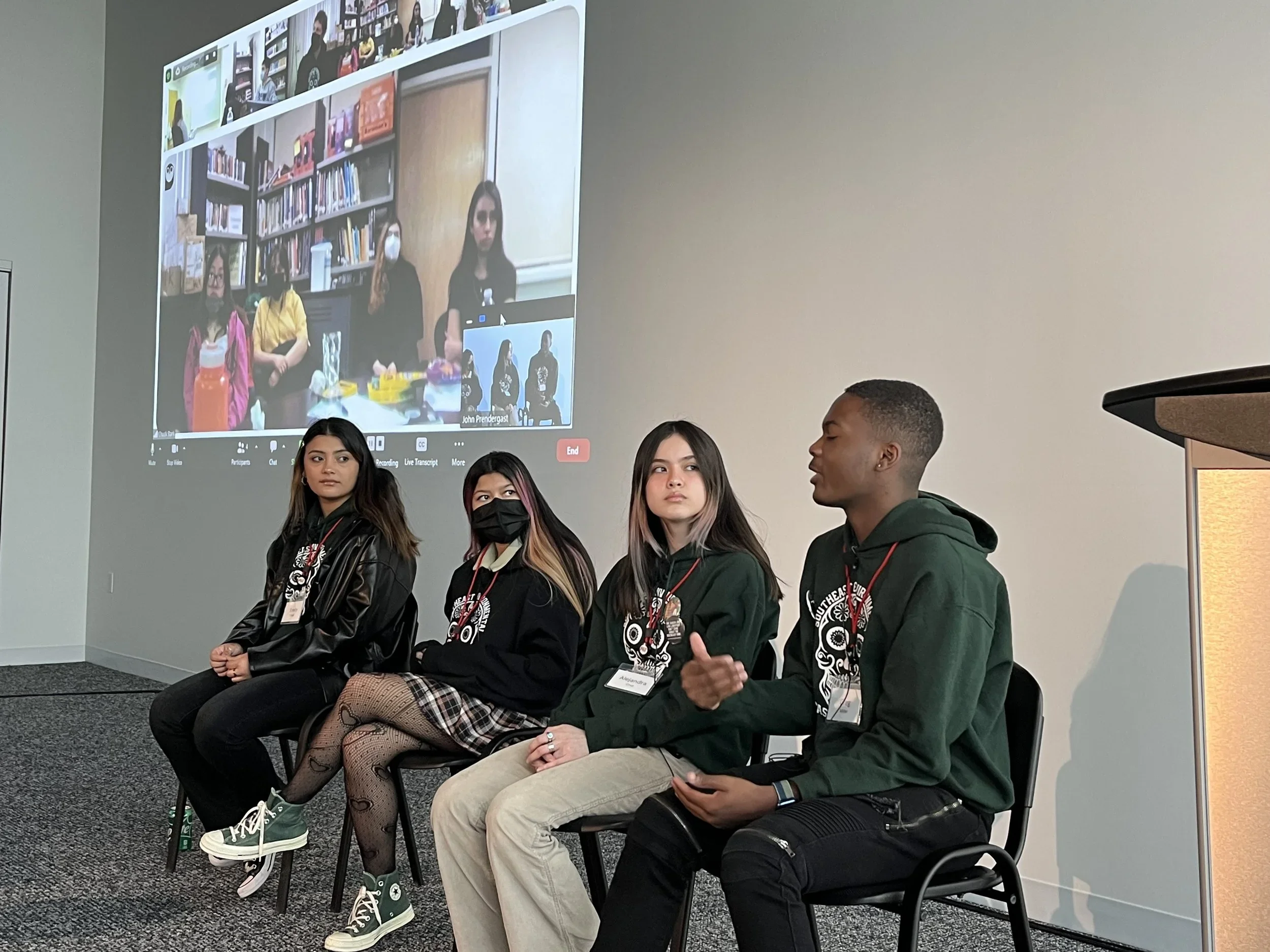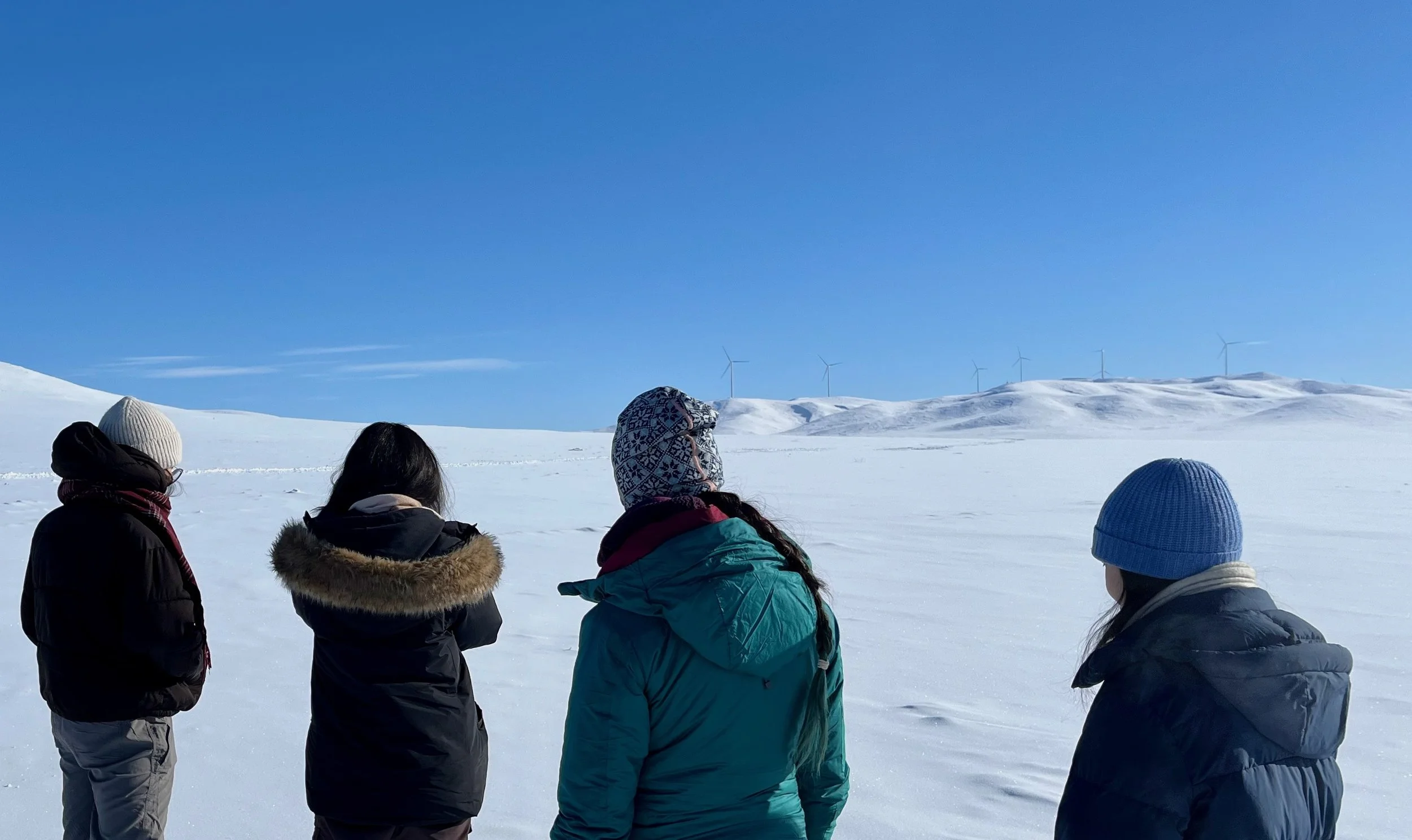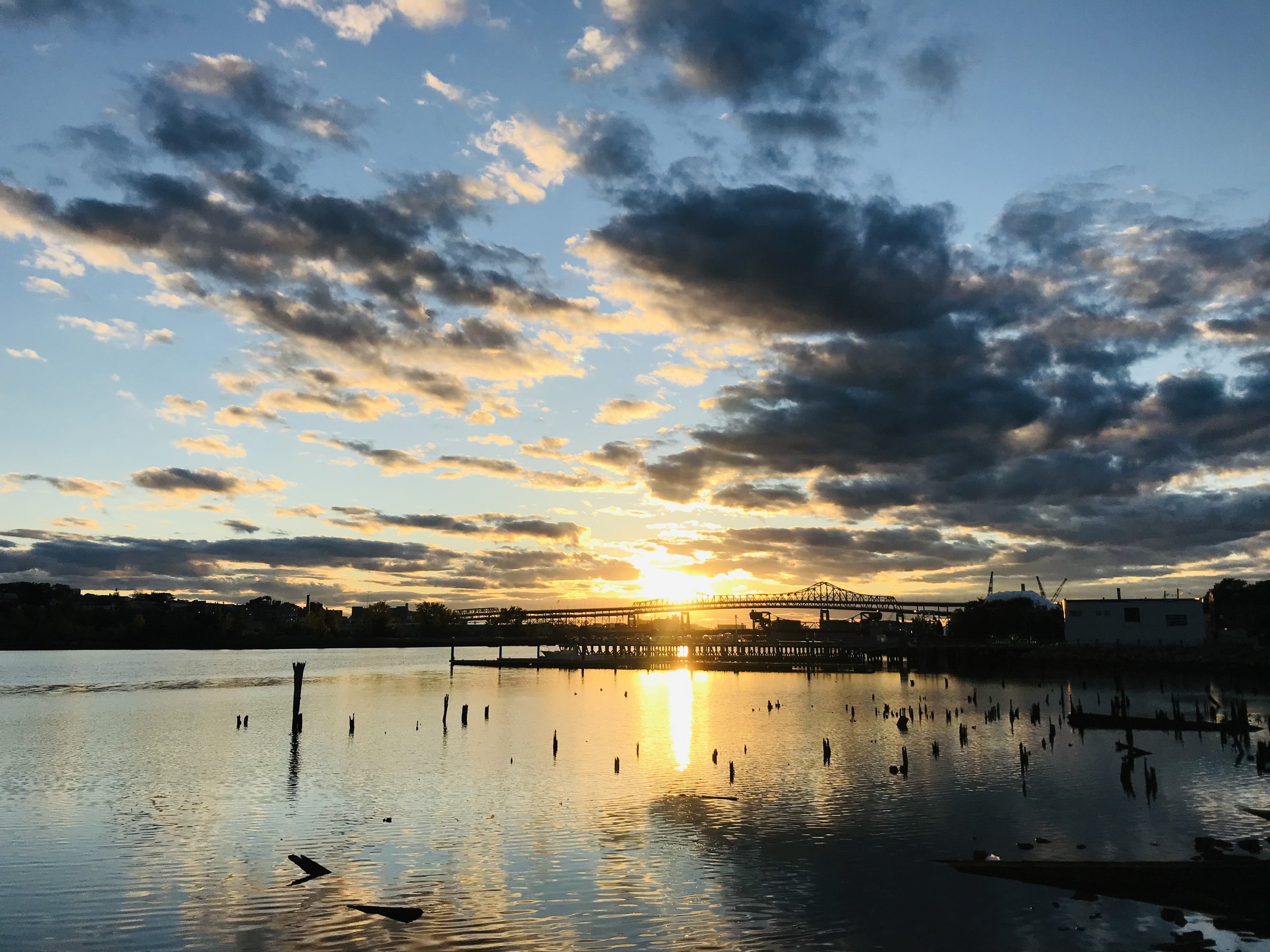Living Climate Futures Lab
Massachusetts Institute of Technology
The Living Climate Futures Lab (LCFL)
is an interdisciplinary initiative bringing together twenty MIT faculty and affiliates from across the Institute. LCFL was the recipient of the inaugural Faculty Driven Initiative (FDI) Seed Grant from the MIT Human Insight Collaborative (MITHIC) in spring 2025.
More about the Lab Members on our People page:
The Living Climate Futures lab aims to serve as a home base and umbrella organization at MIT for the growing numbers of researchers interested in the Lab’s three pillars:
1. Focusing on how climate change plays out in people’s everyday lives.
Trinity Colón, Destiny Vasquez, Alejandra Cruz, and Gregory Miller from Southeast Chicago’s George Washington High School speaking at MIT’s Living Climate Futures 2022 Symposium. Photo by Jade Mazon
2. Creating knowledge and research partnerships with community organizations.
Professor Ryan Emanuel (Lumbee), speaking to a group from the North Carolina Department of Environmental Quality about wastewater contamination. Photo by David Shane Lowry.
3. Building bridges across STEM and SHASS disciplines.
Participants of Decarbonizing Mongolia class trip in 2024, overlooking wind turbines installation on the horizon. Photo by Lauren Bonilla.
A view onto Chelsea Creek looking toward the Boston Bay Marina. Photo by Bettina Stoetzer.
The Living Climate Futures Lab is premised on the recognition that climate change – its causes, impacts, and solutions – are simultaneously economic, ecological, political, technological, social, and cultural. To grasp its complexity, we must conceptualize climate change in holistic ways that cross a range of social and environmental settings and draw upon the expertise of diverse academic disciplines.
Just as climate scientists might use a network of sensors to measure climate change and its planetary impacts, we see the Living Climate Futures Lab as generating a network of community-level “sensors” across disparate social landscapes that can help us better understand how climate change impacts are unfolding in everyday-life settings. The Lab’s collaborative research partnerships with both community groups and STEM faculty will further our knowledge of - and responses to - climate change in ways that aspire to a truly “just transition” away from fossil fuels.






